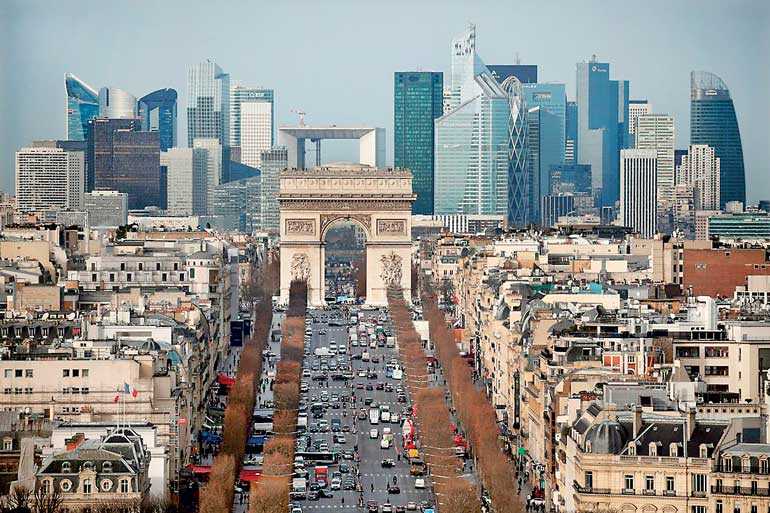Thursday Feb 19, 2026
Thursday Feb 19, 2026
Tuesday, 6 August 2019 01:55 - - {{hitsCtrl.values.hits}}

London (Reuters): Euro zone business growth hit a wall in July as demand crumbled, according to a survey which showed a deepening downturn in manufacturing is increasingly affecting the bloc’s dominant services industry.
Last month the European Central Bank all but promised to ease policy further as the bloc’s growth outlook deteriorates and Monday’s survey will do little to sway market expectations for loosening.
IHS Markit’s Euro Zone Composite Final Purchasing Managers’ Index (PMI), considered a good measure of overall economic health, dropped to 51.5 in July from June’s 52.2, moving closer to the 50 mark separating growth from contraction.
“They weren’t a massive surprise, the composite PMI was left unrevised. There was no worsening in growth but it remains pretty weak,” said Jack Allen-Reynolds at Capital Economics.
Markets ignored the PMI data and instead focused on an escalation of a trade war between the United States and China which drove the yuan to its lowest levels in over a decade on Monday.
The dispute poses the biggest threat to global growth, Reuters polls have found, and in another escalation China on Friday said it would fight back against U.S. President Donald Trump’s abrupt decision to impose 10% tariffs on the remaining $300 billion in Chinese imports.
Those headwinds hurt manufacturers and figures last week showed factory activity contracted in July at its fastest rate in six years.
That factory malaise is now having a greater effect on services and a PMI for the industry fell to 53.2 from 53.6 the month before and below the flash reading of 53.3.
Italy was alone amongst the bloc’s four biggest economies where the PMI rose, offering some hope of a timid recovery there but activity in Germany’s private sector hit its weakest level in more than six years, suggesting Europe’s largest economy started the third quarter on a weak footing. “The economic weakness in the currency union is still concentrated in Germany and Italy. While Italy’s PMI edged up in July it was still very weak and pointing to only a small increase in GDP,” Allen-Reynolds said.
Growth also slipped in France and Spain.
However in Britain, gearing up to split from the European Union, growth unexpectedly accelerated to a nine-month high in July, possibly soothing some worries about whether the country is slipping into recession before Brexit.
Forward-looking indicators suggested there won’t be a turnaround anytime soon and demand for services in the euro zone waned, hit by falling new export business — which includes trade between member countries in the bloc. The sub-index dropped to 49.2 from 49.4.
That had an effect on broader optimism and a composite future output index fell to 58.8 from 59.2, its lowest reading since October 2014.
With the outlook gloomy — affected by trade war worries, slowing sales growth and Brexit woes — IHS Markit said the PMI indicated third-quarter economic growth of only around 0.1%, slower than the 0.3% predicted in a Reuters poll last month.
“Poor survey and hard data prints recently, along with the announcement of 10% additional tariffs on Chinese goods imports to the US will likely weigh on investor sentiment for the euro area in August,” RBC economists told clients.